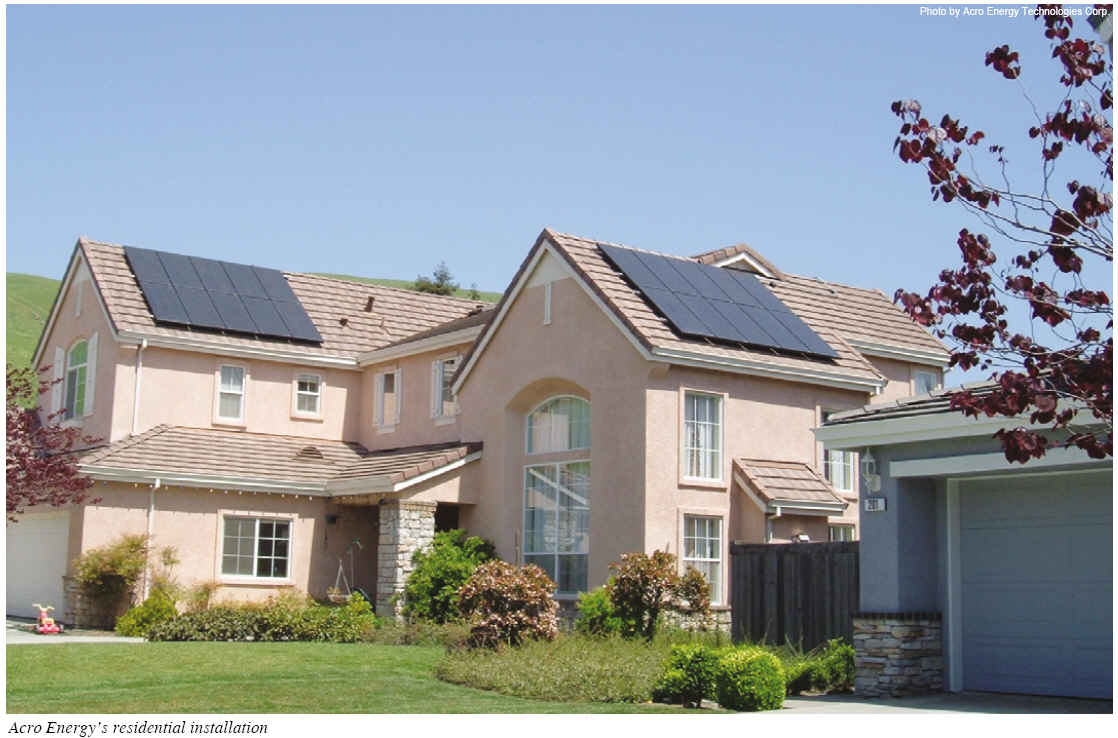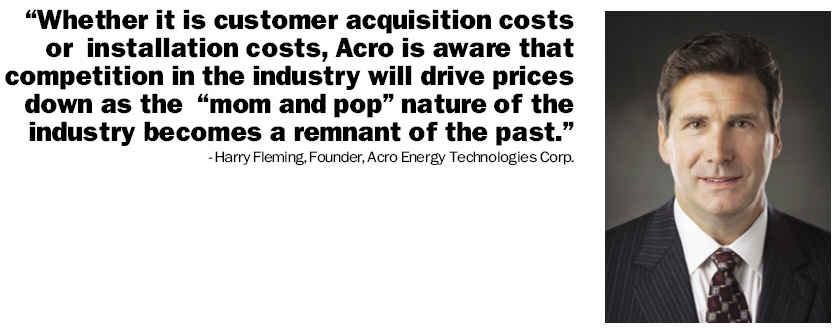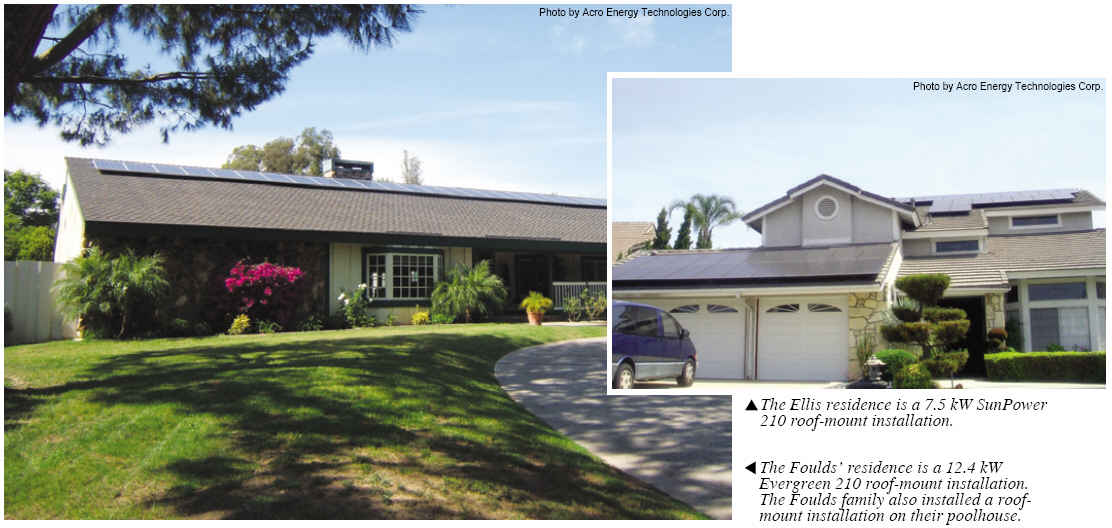Reported by Jeanny Lim (swied@infothe.com)

Acro Energy Technologies and Central Valley Nissan have entered into a joint marketing agreement to give buyers of Nissan’s new full-sized Leaf electric car (and any future electric cars from Nissan or other Central Valley Automotive dealerships) discounts on home solar systems to charge the car. Could you tell us more about this cross-promotion agreement?
Our agreement with Central Valley Nissan provides for a unique marketing opportunity that is beneficial to both companies. We will be cross-promoting through our print and online marketing in order to most effectively inform customers of the benefits of buying a solar system with their new Leaf and vice versa. This will allow our customers to take advantage of exclusive promotions only available when buying a new Nissan Leaf from Central Valley Nissan.
Why do you think buyers of Nissan’s new full-sized Leaf electric car would also be interested in buying home solar systems?
Buyers of the Nissan Leaf will increase their household power usage by 25-50%. In California, this increase means they will spend an extra US$100-US$150 per month, per vehicle. Consumers can offset this--as well as other household power expenses--by moving to solar. Leaf owners can install a solar system for very little upfront cost that will allow them to pay significantly less per month on their electricity costs. This rate can be fixed allowing for the consumer to feel safe that while their neighbors continue to be in dark about rising utility bills, they will know exactly how much they will be paying tomorrow, next month, and next year.
Current buyers are also interested in the reduced environmental impact of these vehicles. Becoming more environmentally friendly is also why many customers go with solar. By sharing a co-interested customer base, we are able to forge a mutually beneficial scenario where a customer who buys an electric car would also be interested in solar and a customer who buys solar would also be interested in an electric car.

Is there a lesson that the solar industry could learn from this kind of cooperation?
Our agreement with Central Valley Nissan demonstrates the incredible opportunities available when cooperating with other industries that share a similar customer base. In this case, we have aggressively sought to expand our sales by taking advantage of a technology relatively new to consumers in order to create a ‘Win-Win’ scenario for both Acro and Central Valley Nissan. Taking advantage of new technologies to create unique cross-promotional agreements is good for the installer, good for the partner, and ultimately, good for the customer.
Please tell us about the current state of the residential solar market in the U.S.A. Do you feel the differences between the solar PV market last year and the market today?
The market for solar is rapidly expanding. This expansion is due to a number of factors, including tax incentives and rebates, falling module prices, and aggressive financing--a ll of which make solar economical for a growing number of households. This, coupled with increasing environmental awareness in mainstream America, has led to an upsurge in sales compared to last year, when the market was generally stagnant compared to previous years.

When will solar power prices move towards grid parity in the U.S. residential market, do you think?
The grid parity question must be answered on a state-by-state basis, considering the electric rates and local incentives of a particular location. If you look at California, a state where average homeowner electricity rates are often in the US$.20+ range, there is already grid parity when you account for the state rebate incentive for solar. Given current tax incentives and rebates, coupled with falling panel prices, research indicates that prices will begin to reach grid parity in 2010, leading to significant market penetration from this point onward. With Acro’s current financing options, solar is already cost-competitive with grid power for many of our customers.
How much growth do you expect for your PV business in 2010?
Given the current atmosphere for solar and Acro Energy’s assertive business and acquisition strategies, we expect organic growth of over 100% in 2010. In addition to our continued growth in California and Arizona, we are in active negotiations with several installers in several northeastern and southwestern states. The size of our next acquisition will undoubtedly affect our revenues in the second half of the year.
What are some of the major challenges for Acro Energy going forward?
As the market matures and becomes mainstream in many states, increasing competition in the industry will drive installation prices down to where only very efficient companies will survive. Whether it is customer acquisition costs or installation costs, Acro is aware that competition in the industry will drive prices down as the ‘mom and pop’ nature of the industry becomes a remnant of the past.

Jeanny Lim is Editor-in-Chief of InterPV. Send your comments to swied@infothe.com.
For more information, please send your e-mails to pved@infothe.com.
ⓒ2010 www.interpv.net All rights reserved.
|



